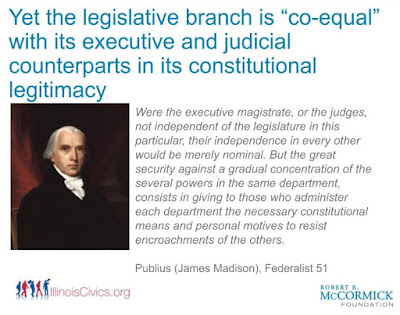Teaching Civics through History with the National Archives

by Mary Ellen Daneels, Civics Instructional Specialist This week, IllinoisCivics.org hosted Dr. Charles Flanagan , Outreach Supervisor for the Center for Legislative Archives in the National Archives and Records Administration, for an interactive webinar to demonstrate how primary sources can be used to teach civics through history. If you missed the webinar, you can view a recording of the one-hour session that modeled how their popular lesson plan, Teaching Six Ideas in the Constitution from the Center for Legislative Archives, can be iterated for virtual learning. Direct instruction on democratic institutions is one of the civic learning practices embedded in the Illinois civics course requirements for both middle and high school. The National Archives has numerous resources through both its Educator Resources and DocsTeach websites that allow students to evaluate sources and use evidence per the Illinois social science standards to dig deeper into the foundational concept...

